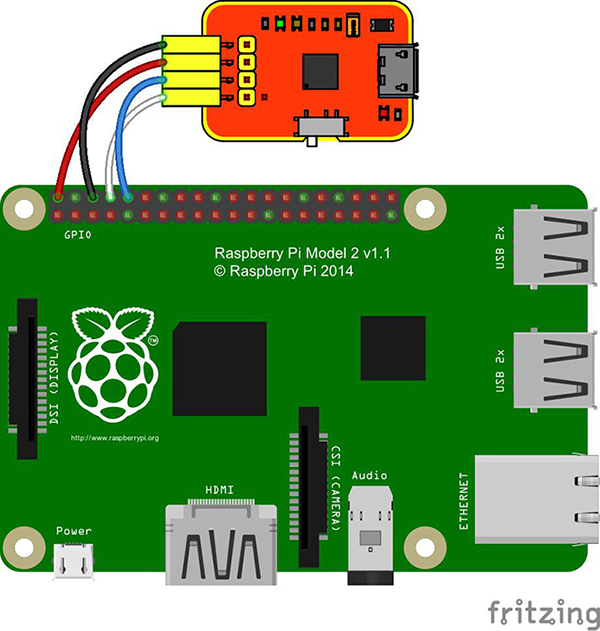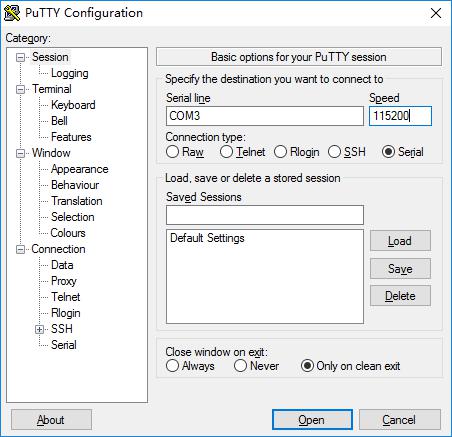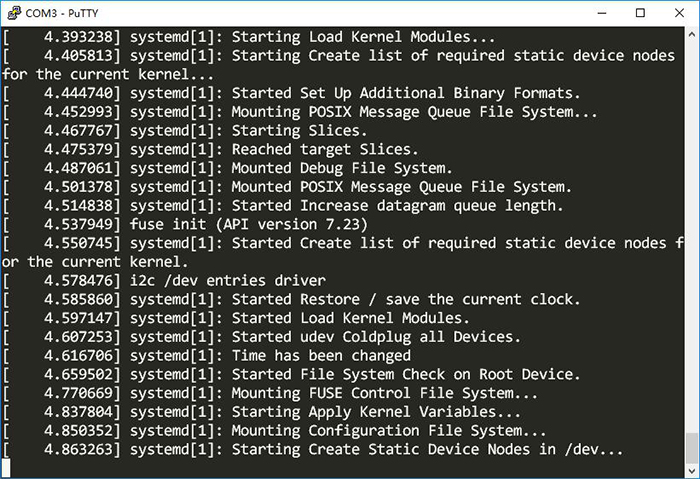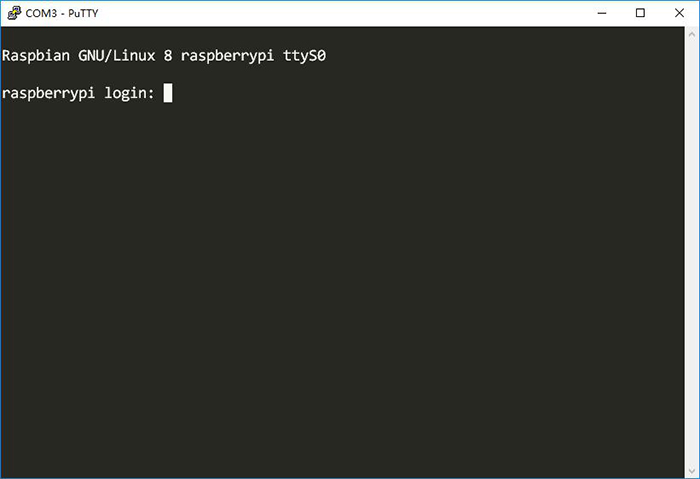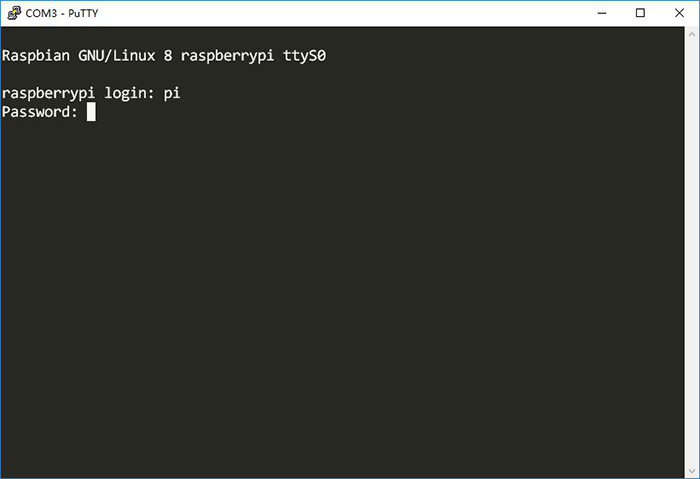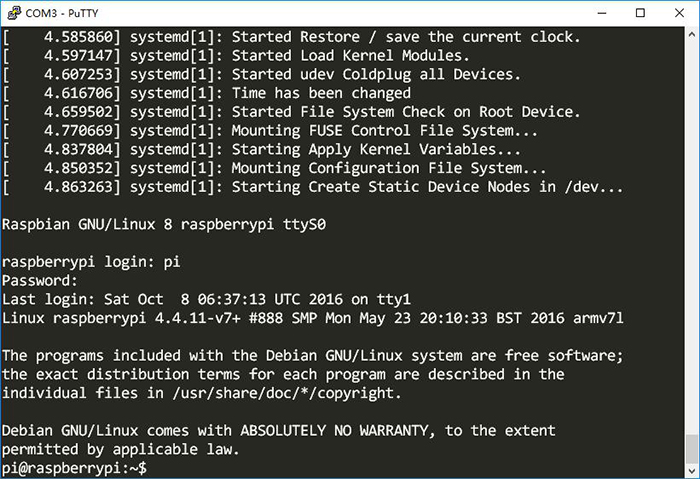Difference between revisions of "FT232"
(Created page with "==Introduction== ==Function== ==For Arduino== ==For Raspberry Pi== ===Premises=== In this tutorial, we will use the SunFounder FT232 Serial to TTL and the PuTTy - an SSH an...") |
(No difference)
|
Latest revision as of 09:45, 1 June 2017
Contents
[hide]Introduction
Function
For Arduino
For Raspberry Pi
Premises
In this tutorial, we will use the SunFounder FT232 Serial to TTL and the PuTTy - an SSH and the telnet client. Refer to the website http://www.putty.org/ for more. Though here we use a Raspberry Pi 2, the tutorial also applies to other Raspberry Pi models.
Procedures
Step 1. Insert the TF card into the Raspberry Pi, and connect it to power. Connect the FT232 to your computer with a Micro USB cable. Next, connect the FT232 to the Raspberry Pi as shown below.
Make sure it is connected to computer correctly.
Step 2. Check the port number in Device Manager of your computer that runs on Windows.
Then open the PuTTy, click Session in the left sidebar. Under Specify the destination you want to connect to, select Serial.
Enter the corresponding port number in Serial Line, and 115200 in Speed.
Step 3. Click Open at the bottom. Then a larger window will pop up.
If your Raspberry Pi is booting now, the window will show the corresponding information:
When the booting is completed, a login prompt will pop up.
If the Raspberry Pi has been booted already,, no prompt will be shown in the window. Press Enter, and a login prompt will appear:
Type in the default Raspbian user name pi, then press Enter:
Then type in the password, raspberry. Press Enter again to log in. (Note: when you type in the password, no character will appear on the screen due to the rule of typing in a password under Bash in Linux. Be careful to type in the password correctly.)
Now you have logged in to the Raspberry Pi by serial.
